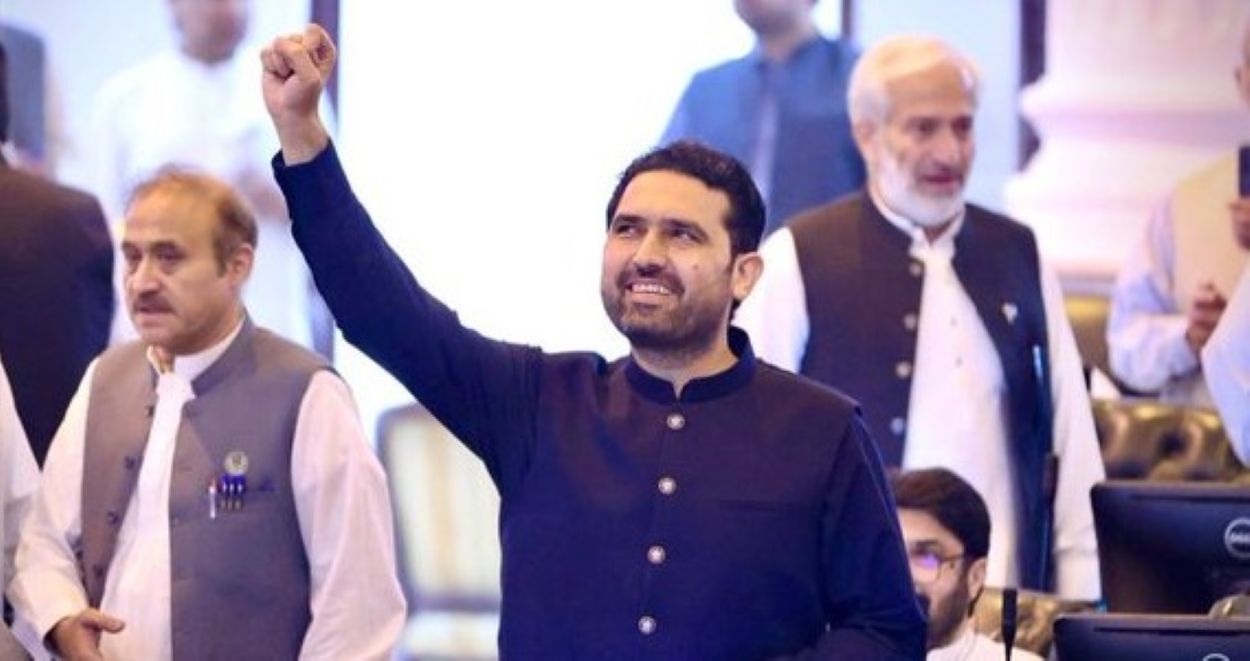Khyber Pakhtunkhwa Chief Minister Sohail Afridi has declared that current anti-terrorism approaches require fundamental reform. The provincial leader stated that policies developed through closed-door processes have consistently failed to achieve their intended outcomes.
Speaking at the Aman Jirga gathering on Wednesday, CM Afridi emphasised his administration’s repeated commitment to peace initiatives. He noted, however, that certain unspecified parties have not welcomed these peace efforts.
The chief minister directly linked sustainable peace to complete terrorism eradication. He criticised the existing policy framework for being formulated without sufficient transparency or inclusion.
طالبان کو واپس لانے کا فیصلہ سیاستدانوں کا نہیں تھا ان کیمرہ بریفننگ میں آرمی چیف اور ڈی جی آئی ایس آئی نے کہا طالبان ہ۔ارے بچے ہیں ہمیں انکو واپس لانا ہے , افغانستان کے پاس سنبھالنے کی قابلیت نہیں-
صوبائی صدر جنید اکبر
pic.twitter.com/HmZAwKJKNa
— PTI (@PTIofficial) November 12, 2025“Peace can only be achieved with the complete eradication of terrorism,” Afridi stated, “and policy on the matter is decided behind closed doors, which so far has not yielded the desired results.” This position continues the critique Afridi initiated during his inaugural provincial assembly speech last month. He previously urged federal authorities to consult local representatives and community elders regarding security policy.
Comprehensive Collaboration Needed
Chief Minister Afridi proposed a fundamentally different approach to counterterrorism planning. He advocated for the development of an inclusive strategy involving politicians, security forces, and all relevant stakeholders.
طالبان کے ساتھ مذاکرات کے لیے لوگ سیاسی جماعتوں نے نہیں بیجھے تھے کور کمانڈر نے بیجھے تھے ، ہمارے ہزاروں شہدا ہیں جنکو نا تو جھنڈا ملتا ہے نا ہی شہید کہا جاتا ہے نا ہی انہیں کوئی پیکج ملتا ہے ۔
صوبائی صدر جنید اکبر کا جرگہ سے خطاب
pic.twitter.com/KuPgmQSxCW
— PTI (@PTIofficial) November 12, 2025The provincial leader specifically called for the formulation of policies to transition from secluded environments to collaborative spaces. He believes that broadly developed policies would achieve greater public acceptance and success in implementation.
CM Afridi positioned military engagement as an option of last resort within comprehensive counterterrorism efforts. He emphasised that alternative strategies should receive priority for sustaining provincial peace. “Military action should remain the last option,” the chief minister asserted during his address. This perspective aligns with his broader call for multi-faceted conflict resolution approaches.
Read: KP CM Sohail Afridi Vows to Back Pakistan Army Against Any Aggression
The chief minister acknowledged the extensive sacrifices made by all Pakistanis during counterterrorism operations. He noted that every Jirga participant had contributed to national security in their respective capacities.
ہم امن کی بات کرتے ہیں کچھ لوگوں کو بدقسمتی سے بری لگتی ہے امن دہشتگردی کے خاتمے سے ہو گا اور دہشتگردی کا خاتمہ بند کمروں کے فیصلوں کی وجہ سے نہیں ہو رہا پالیسی شفٹ کی جائے , بند کمروں سے نکلیں ۔
وزیر اعلیٰ سہیل آفریدی کا جرگہ سے خطاب
pic.twitter.com/8LBeInBasR
— PTI (@PTIofficial) November 12, 2025Afridi emphasised that terrorism represents a shared challenge transcending political affiliations. “When a bomb explodes,” he observed, “it does not see whether the victim belongs to PTI, PPP, or any other party.”
Awami National Party leader Mian Iftikhar Hussain endorsed the call for policy reform while urging practical actions. He specifically requested the release of NFC Award funds and an enhancement of police authority. Jamaat-e-Islami’s former chief, Siraj-ul-Haq, highlighted the public burden resulting from political conflicts. He stated that provincial development suffers when inter-party disputes dominate the political landscape.
Read: Suicide Bomb Blast Near Islamabad Kacheri Kills 12, Injures 2
Qaumi Watan Party Chairman Aftab Sherpao expressed concern about deteriorating law and order conditions. He noted that government authority appears weakened across multiple districts, with military operations causing civilian displacement and fear.






